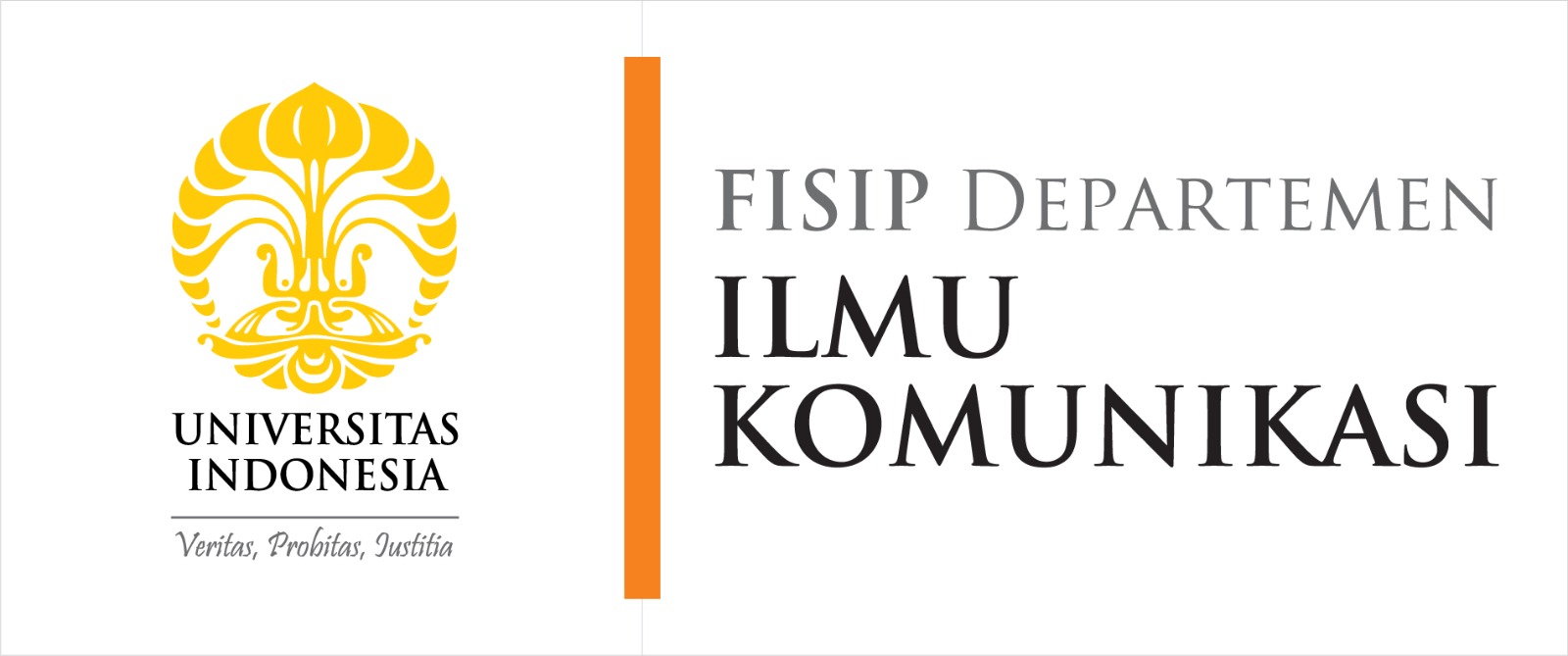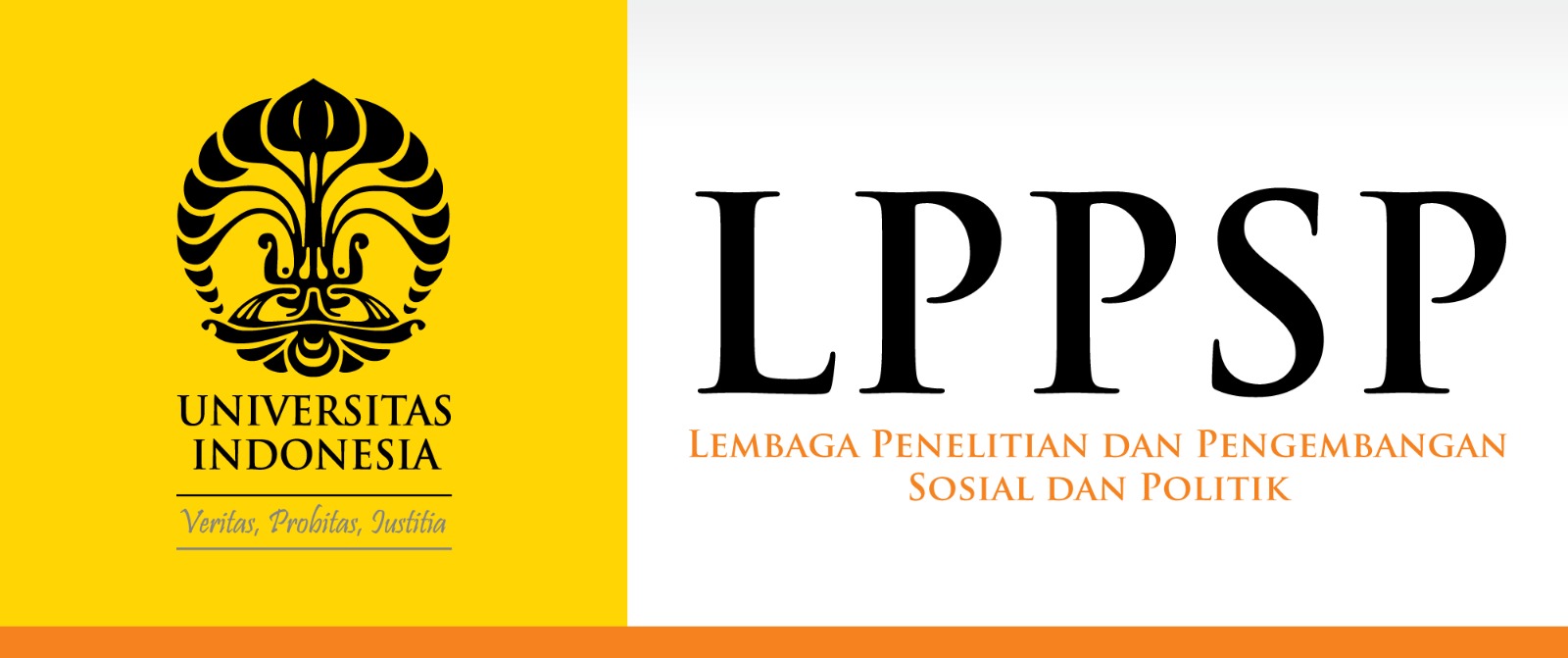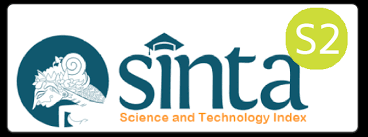JURNAL KOMUNIKASI INDONESIA
Abstract
It is important for millennial mothers to have digital literacy. Millenials are known to have a tight relationship with digital media. Rather than fathers, mothers more often look for any information on child health issues. The study aimed to dig around mothers’ digital literacy practice which they did to obtain information from various online media, and also further understand the mothers’ comprehension on child disease and health issues. This qualitative research applied the post-positivitist paradigm with digital ethnographic method. The study suggests that Gilster’s (1997) digital literacy phases may be added by information sharing phase. This research also added understanding that there was a skill level gradation in each phase, in which the respective phase consisted of low, medium, and high levels. In addition, the mothers’ digital literacy were more affected by interests, curiosities, and needs. It was not always directly proportional to the issue literacy skill. On the other hand, millennial mothers’ online media choices were also affected by the convenience and benefit perceptions of such media. The research also found 5 (five) child disease and health issues which became the millennial mothers’ concerns, namely: 1) common disease, 2) accident, 3) emergency, 4) mental health, and 5) COVID-19 pandemic. It also showed that an interpretation of a disease affected the behaviour toward such disease. In addition, the interpretation was inclined to be affected by the social construction in the media. However, if we observed this from the active audience perspective, the millennial mothers who choose to limit exposures to information on a disease will behave differently from those who do not limit their exposures to information.
Bahasa Abstract
Kemampuan literasi digital sangat penting dimiliki ibu millennial. Generasi millennial dikenal memiliki keterkaitan erat dengan media digital. Terlebih dibandingkan ayah, ibu merupakan sosok yang lebih sering mencari informasi seputar isu kesehatan anak. Tujuan penelitian adalah untuk menggali praktik literasi digital yang dilakukan para ibu dalam mendapatkan informasi melalui berbagai media daring serta menggali pemaknaan ibu atas isu penyakit dan kesehatan anak. Penelitian ini menggunakan paradigma post positivistik dengan pendekatan kualitatif yang menggunakan metode etnografi digital. Hasil penelitian menunjukkan bahwa tahapan dari literasi digital Gilster (1997) dapat ditambahkan dengan tahap berbagi informasi atau sharing. Penelitian ini juga menambah pemahaman bahwa terdapat gradasi level kemampuan di setiap tahapan, yang masing-masing terdiri dari level rendah, sedang, hingga tinggi. Selain itu, kemampuan literasi digital ibu justru lebih dipengaruhi dengan minat, ketertarikan, dan kebutuhan serta tidak selalu berbanding lurus dengan kemampuan literasi isu. Di sisi lain, pilihan media daring ibu millennial juga dipengaruhi oleh persepsi kemudahaan dan persepsi manfaat dari media tersebut. Hasil penelitian juga menemukan ada 5 (lima) isu penyakit dan kesehatan anak yang menjadi perhatian para ibu millennial yakni: 1) penyakit umum (common disease), 2) kecelakaan (accident), 3) kegawatdaruratan (emergency), 4) kesehatan mental (mental health), dan 5) pandemi COVID-19. Penelitian juga menunjukkan bahwa pemaknaan atas suatu isu penyakit memiliki dampak pada perilaku terhadap penyakit tersebut. Pemaknaan juga cenderung dipengaruhi dengan konstruksi sosial di media. Namun dilihat dari perspektif khalayak aktif pada ibu millennial yang memilih untuk membatasi paparan informasi atas suatu penyakit akan memiliki perilaku yang berbeda dengan mereka yang tidak membatasi paparan informasi.
References
Ammari, T., Morris, M. R., & Schoenebeck, S. Y. (2014). Accessing social support and overcoming judgment on social media among par- ents of children with special needs. In International AAAI Confer- ence on Weblogs and Social Media. Ann Arbor, MI.
Aufderheide, P. (1993). Media literacy: A Report of the National Leadership Conference on Media Literacy. Washington, DC: The Aspen In- stitute
Baran, S. J. & Davis, D. K. (2010). Teori Komunikasi Massa: Dasar, Pergo- lakan, dan Masa Depan. Jakarta: Salemba Humanika
Bawden, D. (2001). Information and digital literacies: a review of con- cepts. Journal of Documentation, 57(2), pp. 218-259. https://doi. org/10.1108/EUM0000000007083
Budiati, I., Susianto, Y., Adi, W. P., Ayuni, S., Reagan, H. A., Larasaty, P., Setiyawati, N., Pratiwi, A. I., & Saputri, V. G. (2018). Profil Generasi Milenial Indonesia. Jakarta: Kementerian Pemberdayaan Perem- puan dan Perlindungan Anak.
Ciurel, D. (2016). Media Literacy: Concepts, Approaches and Competen- cies. Professional Communication and Translation Studies, 9, 13- 20.
Costanza, D. P., Badger, J. M., Fraser, R. L., Severt, J. B., & Gade, P. A. (2012). Generational differences in work-related attitudes: A me- ta-analysis. Journal of Business and Psychology, 27(4), 375-394.
Creswell, J. W. (2014). Research Design: Qualitative, Quantitative, and Mixed Methods Approaches (4th ed.). Thousand Oaks, CA: SAGE Publications.
Davis, F. D. (1989). IT Usefulness and Ease of Use. Technology, September, 319–340.
Davis, F. D., Bagozzi, R. P., & Warshaw, P. R. . (1989). User Acceptance of Computer Technology: A Comparison of Two Theoretical Models. Management Science, 35(8), 982–1003.
Geertz, C. (1973). The Interpretation of Cultures. New York: Basic
Books. Gibson, L., & Hanson., V. L. (2013). Digital Motherhood: How Does Technol- ogy Help New Mothers. Proceedings of the SIGCHI Conference on Human Factors in Computing Systems (CHI ’13). ACM Press. New York.
Gilster, P. (1997). Digital Literacy. New York: John Wiley & Sons.
Hibbert, B. (1999). Publishing and the media industries in the digital age. Info, 1(5), 393–403. https://doi.org/10.1108/14636699910801151
Hine, C. (2015). Ethnography for the Internet. London: Bloomsbury
Howe, N., & Strauss, W. (2000). Millennials rising: the next great generation. New York: Vintage Books.
Jensen, Klaus Bruhn & Nicholas W. (1991). A Handbook of Qualitative Methodologies for Mass Communication Research. New York: Routledge
Koltay, T. (2011). The media and the literacies: media literacy , information literacy , digital literacy. Media, Culture, & Society, 33(2), 211-221. https://doi.org/10.1177/0163443710393382
Kominfo. (2017). Ada 800.000 Situs Penyebar Hoax di Indonesia. Diakses dari https://kominfo.go.id/content/detail/12008/ada-800000-situs- penyebar-hoax-di-indonesia/0/sorotan_media.
Kominfo (2018). Menkominfo: Baru 100 Portal Berita Online Terverifikasi. Diakses dari: https://kominfo.go.id/content/detail/12345/menkomin- fo-baru-100-portal-berita-online-terverifikasi/0/berita_satker
Lindgren, S. (2017). Digital Media and Society. New York: SAGE Publica- tions
Livingstone, S., & Helsper, E. (2007). Gradations in Digital Inclusion: Chil- dren, Young People and the Digital Divide. New Media & Society, 9(4), 671-696.
Livingstone, S., van Couvering, E., & Thumin, N. (2008). Converging Tra- ditions of Research on Media and Information Literacies: Disci- plinary, Critical, and Methodological Issues. In J. Coiro, M. Knobel, C. Lankshear, & D. J. Leu (Eds.), Handbook of Research on New Literacies (pp. 103–132). New York, USA: Routledge.
Lupton, R., Pedersen, S., & Thomas, G. M. (2016). Parenting and Digital Media: From the Early Web to Contemporary Digital Society. So- ciology Compass, 10(8), 730–743.
Madge, C. & O’Connor, H. (2006). Parenting Gone Wired: Empowerment of New Mothers on the Internet. Social & Cultural Geography, 7(2), 199-220.
Neuman, W.L. (2014). Social Research Methods: Qualitative and Quantita- tive Approaches (7th ed.). London: Pearson Education Limited
O’Connor, H., & Madge, C. (2004). My Mum’s Thirty Years Out of Date. Com- munity, Work & Family, 7(3), 351-369.
Parry, E., & Urwin, P. (2011). Generational Differences in Work Values: A Re- view of Theory and Evidence. International Journal of Management Reviews, 13(1), 79-96.
Patton, Michael Quinn (2002). Qualitative Research & Evaluation Methods (3rd ed.). Thousands Oaks: SAGE Publications
Plantin, L., & Daneback, K. (2009). Parenthood, information and support on the internet. A literature review of research on parents and pro- fessionals online. BMC Family Practice, 10(34), 1–13. https://doi. org/10.1186/1471-2296-10-34
Potter, J. (2019). Media Literacy. In SAGE (9th ed.). New York: SAGE Pub- lications.
Pyöriä, P., Ojala, S., Saari, T., Järvinen, K. (2017). The Millennial Genera- tion: A New Breed of Labour?. Sage Open, 7(1), 1–14. https://doi. org/10.1177/2158244017697158
Sarwono, S. (1993). Sosiologi Kesehatan: Beberapa Konsep Beserta Ap- likasinya. Yogyakarta: Gajah Mada University Press
Sunarto, K. (2002). Materi Pokok Sosiologi Kesehatan. Jakarta: Universitas Terbuka
Tapsell, R. (2015). Platform Convergence in Indonesia: Challenges and Opportunities for Media Freedom. Convergence: The International Journal of Research into New Media Technologies, 21(2), 182–197. https://doi.org/10.1177/1354856514531527
Vanwynsberghe, H. (2014). How users balance opportunity and risk : a conceptual exploration of social media literacy and measurement. Ghent University. Faculty of Political and Social Sciences, Ghent, Belgium
Recommended Citation
Fauziati, Choirunnisak
(2021)
"Millenial Mothers’ Digital Literacy regarding Child Disease and Health Issues,"
JURNAL KOMUNIKASI INDONESIA: Vol. 10:
No.
1, Article 4.
DOI: 10.7454/jkmi.v10i1.1018
Available at:
https://scholarhub.ui.ac.id/jkmi/vol10/iss1/4
Included in
Gender, Race, Sexuality, and Ethnicity in Communication Commons, International and Intercultural Communication Commons, Social Influence and Political Communication Commons




